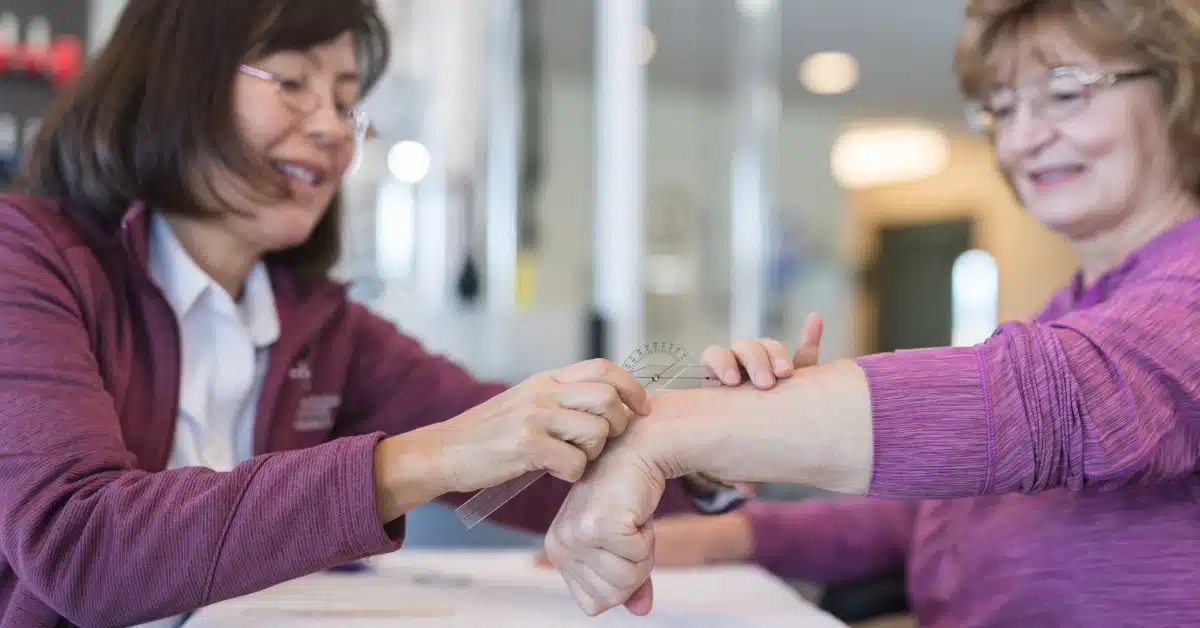Therapy and Rehab Insights
Subscribe to the newsletter for expert perspectives and top insights for leading a high-growth PT, OT, SLP, or multi-specialty practice.
LATEST
5 Weeks to Go-Live: How Raintree’s Success Blueprint™ Redefines EMR Implementation
How Raintree's proven Success Blueprint™ for EMR implementation, powered by 40 years of expertise, helps your therapy practice go live faster.
Read More →
LATEST
5 Weeks to Go-Live: How Raintree’s Success Blueprint™ Redefines EMR Implementation
How Raintree's proven Success Blueprint™ for EMR implementation, powered by 40 years of expertise, helps your therapy practice go live faster.
Read More →
Filter by Topic
- All
- Business Intelligence and Analytics
- Client Stories
- Clinical Documentation
- Downloadable
- eBook
- Expert Voices
- Foundations
- Marketing
- Patient Engagement
- Pediatric Therapy and ABA
- Raintree
- Regulatory Compliance and Security
- Revenue Cycle Management and Billing
- Staff
Prioritizing Patient Adherence: 4 Tactics for Improving HEP Compliance
Home exercise program adherence can define recovery in physical and occupational therapy. Use these tactics to boost HEP compliance.
Read More
Return-to-Work Programs in Rehab Therapy: Aligning Operations, Outcomes, and ROI
Learn how a return to work program that's built into clinical and billing operations can drive stronger outcomes, referrals, and revenue.
Read More
Native AI vs. Third-Party Integration: What’s the Difference and Why It Matters
Discover why EMR native AI outperforms third-party solutions, providing faster processing and deeper insights for rehabilitation organizations.
Read More
Navigating EMR Downtime and Protecting Your Physical Therapy Operations
Safeguard your therapy practice from EMR downtime by uncovering hidden costs and implementing proactive plans for operational resilience.
Read More
CPT Code 97116: An Essential Code for Physical Therapy and Rehab
Understand the ins-and-outs of CPT code 97116, the procedure code for gait training. We share how to bill for this therapeutic procedure at scale.
Read More
Raintree User Experience: The New Standard All Other EMRs Will Strive For? It’s True!
AI changes the paradigm for therapy EMRs. Tara Clem, Chief Product Officer, shares her vision of transformation for the Raintree user experience.
Read More
Speech Therapy Billing and Medicare Payments
Learn how to navigate speech therapy billing and Medicare payments with the basics of SLP coding, fee schedules, medical necessity, and more.
Read More
Mastering SLP Billing: Guide to CPT Codes for Speech Therapy
It's time to learn the ins-and-outs of speech therapy billing and reimbursement. These are the most common speech therapy CPT codes for 2024.
Read More
Intro to Medicare Billing and Occupational Therapy
Does your OT practice serve Medicare patients? Take a moment to review this essential guide to Medicare billing and occupational therapy.
Read More
What Is the 8-Minute Rule? [+ Cheat Sheet]
Learn how to bill Medicare for timed physical therapy services using the 8-minute rule. Plus example scenarios and a handy billing unit chart!
Read More
OT Billing Guide: Top Occupational Therapy CPT Codes
Explore the essential CPT codes for occupational therapy evaluation and treatment. Occupational therapists, don't miss this helpful billing resource.
Read More
ICD-10 Codes for Occupational Therapy
Discover the essential outpatient occupational therapy ICD-10 codes for accurate billing and coding. Tips and resources included!
Read More














